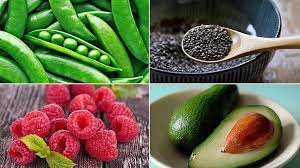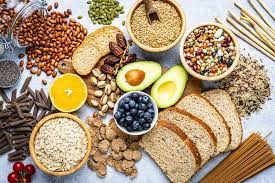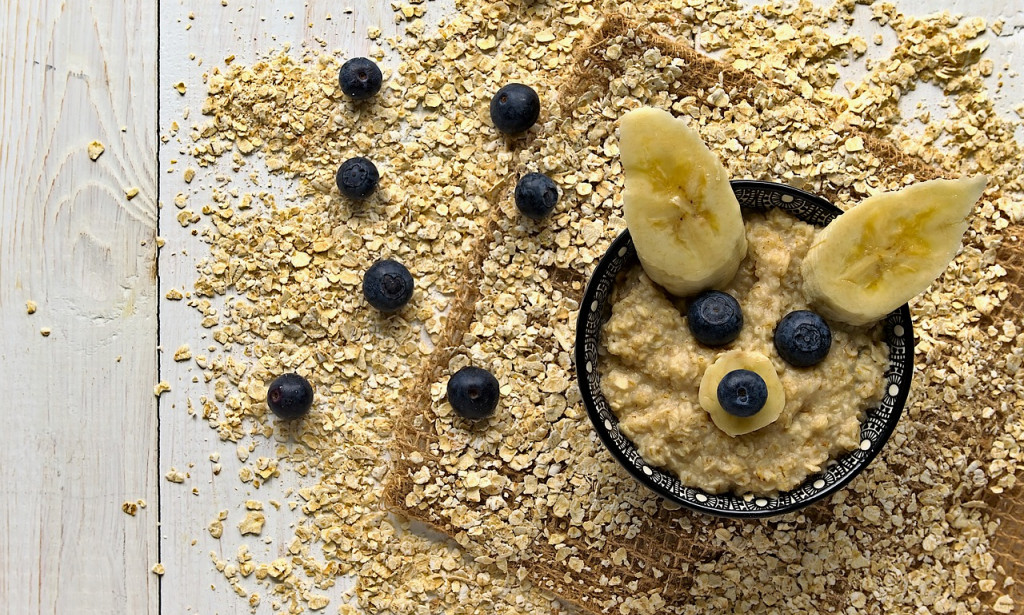Absolutely, here’s a comprehensive exploration of the topic "Health and Fitness Loaded with Fiber":
The Impact of Fiber on Health and Fitness
Fiber stands as an essential component of a balanced diet, playing a crucial role in maintaining optimal health and bolstering fitness levels. Its multifaceted benefits span various aspects of physical well-being, contributing significantly to overall vitality.

Understanding Fiber
Fiber, a type of carbohydrate found in plant-based foods, is divided into two main categories: soluble and insoluble. Soluble fiber dissolves in water, forming a gel-like substance, while insoluble fiber adds bulk to the stool, aiding in regular bowel movements.

Health Benefits of Fiber
Digestive Health: A high-fiber diet supports healthy digestion by promoting regular bowel movements, preventing constipation, and reducing the risk of digestive disorders like diverticulitis.
Weight Management: Foods rich in fiber tend to be more filling, aiding in appetite control and weight management by keeping you fuller for longer periods, thereby reducing overall calorie intake.
Heart Health: Soluble fiber, found in foods like oats, beans, and fruits such as apples and oranges, helps lower LDL (bad) cholesterol levels, reducing the risk of heart disease and stroke.
Blood Sugar Regulation: Fiber slows down the absorption of sugar, helping to stabilize blood sugar levels and manage conditions like diabetes.
Gut Health: Fiber acts as a prebiotic, nourishing beneficial gut bacteria and supporting a healthy gut microbiome, which is vital for immune function and overall wellness.
Fiber-Rich Foods
Fruits and Vegetables: Berries, oranges, apples, carrots, broccoli, and leafy greens like spinach are excellent sources of fiber.
Whole Grains: Foods such as oats, quinoa, brown rice, whole grain bread, and pasta provide a substantial amount of fiber.
Legumes: Beans, lentils, chickpeas, and peas are not only high in fiber but also offer plant-based protein, making them a great addition to a balanced diet.
Incorporating Fiber into Your Diet
Gradually increasing fiber intake is essential to avoid digestive discomfort. Aim to incorporate a variety of fiber-rich foods into your meals while ensuring adequate hydration to support the digestive process.
Absolutely, let's delve deeper into the intricacies of the role of fiber in health and fitness:
Fiber and Disease Prevention
Cancer Prevention: Adequate fiber intake, particularly from whole grains, fruits, and vegetables, has been associated with a reduced risk of certain cancers, including colorectal cancer. Fiber helps promote regular bowel movements, reducing the exposure of the colon to potential carcinogens.
Heart Disease: High-fiber diets have shown correlations with lower blood pressure and reduced inflammation, contributing to a decreased risk of heart disease. Soluble fiber specifically helps lower cholesterol levels, a major risk factor for heart issues.
Different Types of Fiber and Their Benefits
Soluble Fiber: Found in foods like oats, legumes, and some fruits, soluble fiber dissolves in water to form a gel-like substance, aiding in lowering cholesterol levels and stabilizing blood sugar.
Insoluble Fiber: Commonly found in whole grains and vegetables, insoluble fiber adds bulk to stool, promoting regular bowel movements and preventing constipation.
Weight Management and Fiber
Satiety: Fiber-rich foods tend to be more filling, which can help control appetite and reduce overall calorie consumption, contributing to weight loss or weight maintenance.
Metabolic Health: Higher fiber intake has been associated with better weight management and a reduced risk of obesity, possibly due to its impact on slowing down digestion and regulating blood sugar levels.
The Role of Fiber in Gut Health
Microbiome Support: Fiber acts as fuel for beneficial gut bacteria, aiding in maintaining a diverse and healthy gut microbiome. This balance is crucial for digestive health, immunity, and even mental well-being.
Digestive Disorders: For individuals with conditions like irritable bowel syndrome (IBS), fiber intake might need to be managed carefully, as some types of fiber can exacerbate symptoms. Tailoring fiber sources can help alleviate discomfort.
Practical Tips for Increasing Fiber Intake
Gradual Increase: Slowly introduce fiber-rich foods to your diet to allow your digestive system time to adjust and avoid potential discomfort.
Varied Sources: Incorporate a mix of fruits, vegetables, whole grains, legumes, nuts, and seeds to diversify fiber intake and maximize its health benefits.
By recognizing the diverse ways fiber impacts health and fitness—from disease prevention to digestive health and weight management—and adopting a balanced, diverse diet rich in fiber, individuals can harness its full potential for overall well-being. Adjusting dietary habits to include a variety of fiber sources ensures a holistic approach to maintaining optimal health and fitness levels.
Conclusion
Fiber plays a pivotal role in promoting health and fitness by supporting digestion, aiding in weight management, enhancing heart health, regulating blood sugar levels, and fostering a healthy gut. By incorporating a diverse range of fiber-rich foods into your diet, you can harness the myriad benefits of this essential nutrient and pave the way toward a healthier, fitter lifestyle.
This detailed overview aims to highlight the crucial role of fiber in health and fitness, elucidating its numerous benefits and providing practical insights on incorporating fiber-rich foods into one's diet for enhanced well-being.
Prosperity and Health Stacked with fiber, protein and supplements, then is the explanation morning dinners in extra energy are missing without oats. Oats are an individual time superfood stacked with fiber, cell fortifications, and basic enhancements, making them ideal for cold precipitation. They help the frail system, give upheld energy, and support osmosis. Clinical benefits of Oats are stacked with critical supplements, minerals, and cell fortifications. They contain supplements like manganese, phosphorus, magnesium, and iron that help with saving serious solid areas for bones, working honorably, and pull oxygen around your body It's edge time( nearly) in most outrageous lobby of northern India, and you comprehend what it suggests cool, murky mornings, fresh nights, and a lot of wheezing. This is the place where you ought to shield that your bodies stay warm to fight the smelling cold wave. These edge time superfoods aren't simply heavenly, yet in that frame of mind with fiber, protein, malignant growth anticipation specialists, and supplements. They can cut down your cholesterol, support your feeble structure, and help stoppage. In addition, they're so normal to prepare and variable. Oats could feel like a beginning grain, but they're conceivably of the most sought-after constituent that give solid healthy plants in crisp precipitation. They're copious in essential supplements, minerals, proteins, and high fiber content — a blend that saves us all the more full for longer terms, huge during the edge time months. Oats likewise work really hard of supporting weak capability, which is significant on the grounds that becoming ill is more probable in the colder time of year." Be it enchanting a direct, seething arena of porridge or raising its nutritive worth by adding superfoods like dates, chia seeds, or periodic berries, oats stand as a variable and key part in projecting sound, empowering individual time reflection. Really great for exemption, oats support the body's weak reaction, which is vital during the colder months when disease is more probable.


You must be logged in to post a comment.